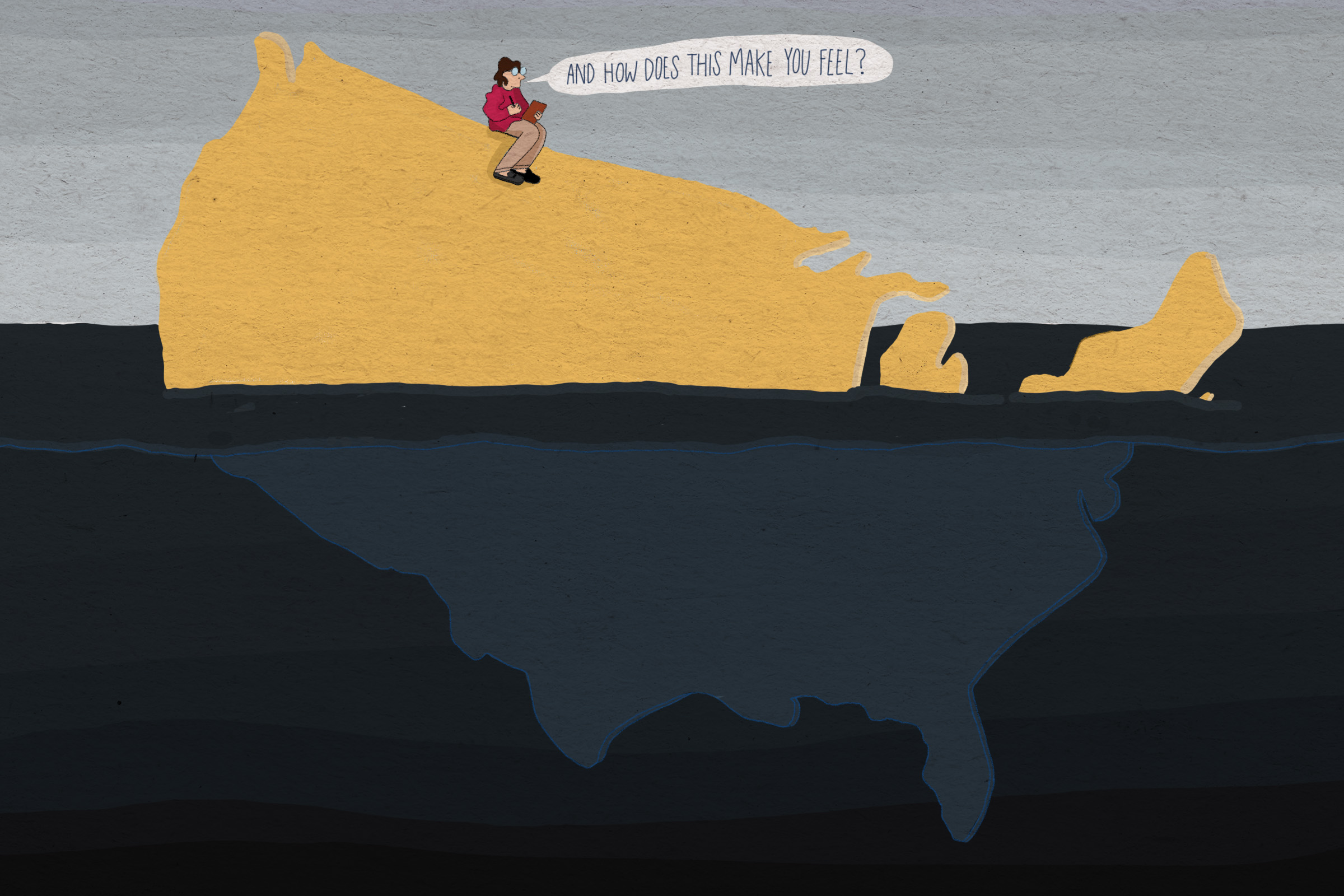
Enough of them can.
deleted by creator
So it turns you into a Red Guard? :o
C’mon now, we can’t ALL be drug dealers
It’s seldom covered in any decent capacity by most work or private health insurance unless you target it directly and lose out on other options.
Most offices are corner cutting so hard that the following week, you might have a new therapist/counselor that has no frame of reference beyond the former’s patient folder on you.
A lot of therapy is just a gotcha for Christian and religious bullshit.
Therapy and mental health is often seen as a sign of weakness for men, who often times never open up or seek help to begin with due to the stigma.
This isn’t a huge conundrum. It’s pretty easy to understand.
Yes
My therapist asked me about what stresses me out the most. I said “rent doubled”. She said, “Yeah there’s no therapy for that.” Then we chuckled and sighed deeply while we looked for something more lighthearted to talk about, like my father’s disappointment at me.
Our mental health is getting worse because life on this planet is getting worse. It’s not rocket science.
I am shocked that a market based healthcare system that prioritizes profits manages to lock people into lucrative consumer cycles where they’re conditioned to rely on medications or treatments that don’t cure them. I am shocked.
Completely unrelated, it’s very noticeable how everyone is medicated and has mental health problems since I’ve moved to the US, weirdly back in Australia where the health system is different it’s less common. What are the odds of that…
Oi cunt. Strallya!
So it’s that the treatment is intentionally ineffective?
It’s not that the US is a worse place to live?
Without reading the article I’m gonna guess that it’s because work, politics and culture have got you all so permanently stressed and anxious that you turn on each at the slightest upset like sharks scenting blood.
We live in a world that rewards narcissistic asshole behavior and nothing else. It’s fucking depressing no amount of therapy will change that.
But some drugs might help you change your brain chemistry to be as narcissistic or just so singular focused that you can’t think about being depressed because you are focused on repetitive task work.
And isn’t that the fix that we all need?
Alternate reading of the headline: “We’re using more bandages than ever- why are people still getting cuts?”
If your boat is on fire. And has been for a while. And you start throwing water on it - but at the same time someones at the top of the boat are actively throwing gasoline everywhere - you aren’t going to put out the fire.
Is our mental health getting worse, or are we more aware of mental health issues? The article mentions how more people seek therapy now than 20 years ago and how more people are reporting their mental health as not good. However, I wonder how many people back then had mental health issues that they suffered in silence with. There used to be more of a stigma with having mental health disorders which led to people not seeking treatments (which of course led to less diagnoses). Someone with anxiety or depression would live with it or chalk it up to a character flaw or might think that what they’re dealing with was what everyone dealt with, but they probably wouldn’t seek therapy or tell anyone that their mental health is poor. So I do think that part of it is people acknowledging their struggles with mental health more now than ever.
I think this is a big factor in the uptick of MH cases being reported. It’s more okay to seek out help, so it gets reported more. The cases were still there 20 years ago.
When the military started to crack down on sexual assault and made it more “friendly” to report being a victim the number of cases reported went up. The cases where always there. Now we have a better idea of what we didn’t know before.
It’s the same thing with more lgbqt+ people. They’ve always existed, but since it’s more and more acceptable to come out more people are comfortable than ever before, despite the right screaming that kids are being “indoctrinated”.
It’s an interesting article and worth a full read. But I’ll bullet point the main problems with mental healthcare it describes (based on my comprehension of the article):
- Over and misdiagnosis - since mental health disorders are based on symptoms which often overlap with other conditions, misdiagnosis is common. Also, diagnosis is inherently subjective and depends on the therapists impressions and the quality of information the patient gives
- Therapy itself doesn’t work for everyone, and when it does it often takes a lot of time. People expect to head into one or two therapy sessions and have all their problems solved. Also, some forms of therapy have less evidence of effectiveness.
- Since therapy is hard, time consuming, and costly, therapists often resort to prescribing meds. Antidepressants in particular are far less effective than people perceive. At best antidepressants can slightly help improve your mood, but the hard work of therapy is needed to address the underlying issues, which often doesn’t happen.
- What often has the biggest benefits are strategies that help people manage the stressors, habits, and circumstances of their lives. Traditional therapy often isn’t geared toward that, and there is only so much any therapy can do because…
- A lot of our mental health is based on societal factors and our circumstances, and you can’t just talk your way out living with all of this gestures vaguely at everything
- The rise of app based mental healthcare is good in that it expanda access, but the quality is shit.
and you can’t just talk your way out living with all of this gestures vaguely at everything
Chad analysis
The rise of app based mental healthcare is good in that it expanda access, but the quality is shit.
Careful peeps, they leak data too… which could cause a lot of mental health stressors. So got to keep that in mind when dealing unreliable tech merchants or really any of them.
Someone please correct me if I’m wrong because I have trouble understanding this. But someone told me the other day that I’m the height of the Great Depression,1931(?), that the average American was making 88k in todays dollar.
Today the average American is making 33k. Is this true?
If this is true that would totally explain the amount of mental illness on top of climate change concerns. If it is true I don’t know why more people wouldn’t be talking about it
A lot of those claims are based on tax return numbers, which radically overestimate the average salary back then because only the richest people actually filed taxes during that time.
Don’t get me wrong, we’re not in a good place, but it’s not peak great depression bad.
No bread lines where I live, yet.
There are bread lines where I live. The homeless/houseless population is absurd.
I dunno. Seeing quasi hoovervilles popping up with communities of homeless people living in tents and I don’t even live in California. We are like 80% of the way to great depression but there is just more large scale manufacturing of food and entertainment these days
Idk anything about that, but I have heard that the wealth disparity is worse than pre-revolution France
As far as a percentage of your annual income goes, during the Great Depression houses were cheaper than they are today.
Shit, buying a house then was cheaper than RENTING today.
Can’t comment on 88K figure
But for current times… 33k is a bit to low. I think official stats is that wage is 39K for all working adults. and closer to 50k for full time working adults. these are median, not averages. ie 50% makes less, 50% make more.
I make 31k so try again.
You are below median. Here are some data on U.S. median personal income over time.
It’s pretty simple…the people that really need mental health services can’t afford it.
Antidepressants aren’t cheap if you’re on the designer drugs…and they’re the first ones recommend by most doctors.
I’ll choose “every politician is a lying grifter” for $500, Alex.











